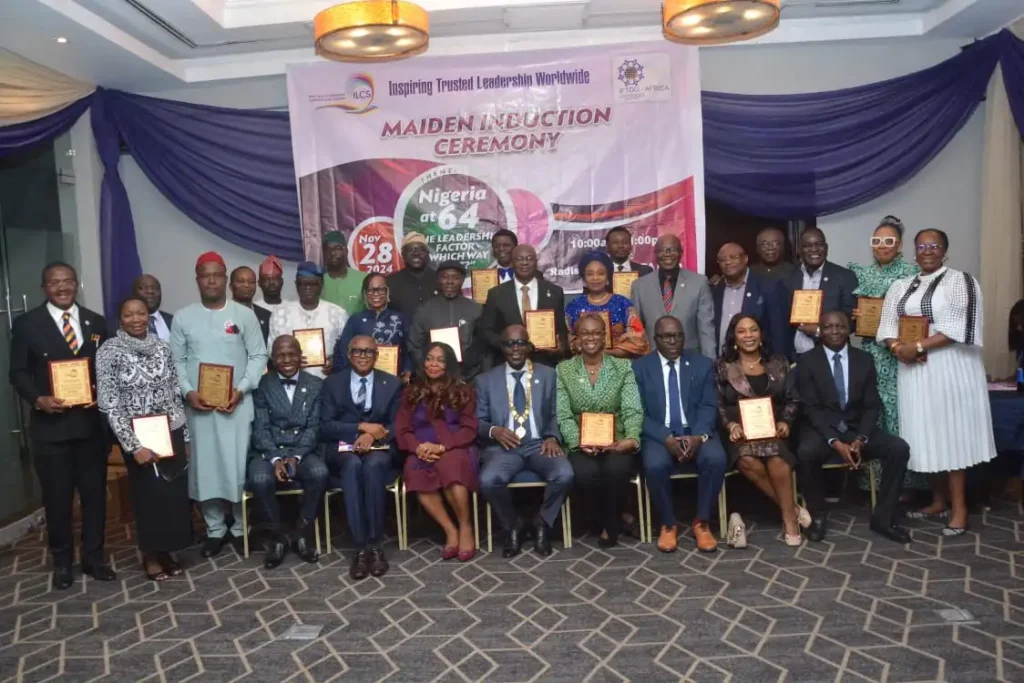CurrentReport Blog The Institute of Leadership Coaching and Strategy (ILCS) has emphasized the urgent need for responsible and strategic leadership to address Nigeria’s developmental challenges. Speaking at the inaugural induction ceremony of the institute in Lagos, Dr. Azeez Olasunkade, President and Chairman of the Governing Council, stated that Nigeria’s persistent poverty stems from poor leadership recruitment since independence in 1960.
Themed “Nigeria at 64: The Leadership Factor – Which Way Out?” the event brought together technocrats, professionals, and stakeholders both physically and virtually to discuss Nigeria’s leadership challenges and chart a way forward.
Leadership at the Core of Nigeria’s Challenges
Dr. Olasunkade highlighted that while Nigeria is endowed with vast human and material resources, poor leadership has hindered its potential.
“Nigeria as a nation, with what we are endowed with, has no business with poverty but for leadership challenges,” he said.
He described the ILCS as a professional body dedicated to promoting disciplined and responsible leadership through research, advocacy, and capacity-building. The institute aims to foster a just and equitable society by developing leaders capable of driving sustainable development.
Critical Leadership Issues
The ILCS president identified key issues plaguing Nigerian leadership, including corruption, lack of accountability, weak institutions, and ethnic and religious divisions. He urged inductees to uphold the institute’s professional conduct and work toward strengthening governance structures.
Perspectives from Experts
In his keynote address, Prof. David Aworawo, an expert in International Relations and Strategic Studies, reflected on Nigeria’s trajectory since independence. He noted that political crises and selfish interests have often derailed the country’s progress, leaving many citizens disillusioned.
Chairman of the occasion, Mr. Akinlolu Iroko, emphasized that leadership is a service, not a position of power. He lamented that Nigeria’s democracy has often produced rulers instead of leaders, leading to stagnation.
“Leadership means integrity, inspiration, humility, and empathy. Without these, we get the opposite,” Iroko stated.
Induction of New Members
The event witnessed the induction of over 50 members into the ILCS, including prominent figures such as lawyer Olajide Ologun, who called for a redirection of Nigeria’s leadership culture toward selfless service. He pointed out that Africa, despite its abundant resources, continues to battle poverty due to ineffective leadership.
Other inductees included Kamar Isikalu, Bolanle Disu, Ibukun Ekisola, and Sunday Aiyegba, among others.
Moving Forward
The ILCS reiterated its commitment to advocating for responsible leadership and addressing the systemic issues undermining Nigeria’s growth. The institute called for collective efforts to rebuild trust and accountability in governance, ensuring a brighter future for Nigerians.












